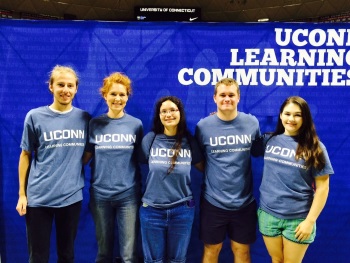On November 2, historian Nile Green will be at the University of Connecticut, speaking at the Fusco Distinguished Lecture Series. Dr. Green, a professor of history at the University of California – Los Angeles, will be presenting a lecture entitled, “The Muslim Discovery of Japan: Global History and the Inter-Asian Encounter.” Dr. Green’s lecture is related to his monograph, Terrains of Exchange: Religious Economies of Global Islam.
Dr. Green has published widely on Islam, globalization, and Muslim interactions with the non-Muslim world. Throughout his career as a historian, Dr. Green has traced the various Muslim networks that connect Afghanistan, Iran, the Indian Ocean, Africa, Japan, Europe, and America. His most recent monograph, The Love of Strangers: What Six Muslim Students Learned in Jane Austen’s London, is a microhistory that chronicles the journey of Muslim students from Iran to London, where they were tasked with learning scientific skills to bring back to their home country. In his 2015 monograph, Terrains of Exchange: Religious Economies of Global Islam, Dr. Green explores how interactions between Muslim and non-Muslim societies transformed both Islamic practices and the history of Islam. Further, Dr. Green sheds light on the growth of Islam in both Japan and America.
Dr. Green’s work on Islam has set him apart from other historians in the field due to the emphasis he has placed on religion in his scholarship. Rather than using the nation-state to frame questions and investigations into the past, Dr. Green emphasizes religion. In his scholarship, Dr. Green pulls from a wide range of sources, including diaries from traveling students, reports from missionaries, magazines, Bibles, and the first books printed in Arabic. Dr. Green describes himself as a historian of the multiple globalizations of Islam and Muslims.
Dr. Green was the founding director of the UCLA Program on Central Asia. He currently serves on the Association of Asian Studies’ South Asia Council, the Executive Committee of the American Institute of Afghanistan Studies, and on the editorial boards of both Iran-Nameh and Afghanistan.
On Friday, November 3, at 10:00 AM, the History Department will be hosting the Fusco Workshop in the Wood Hall Basement Lounge. Dr. Green will be discussing a pre-circulated paper regarding a global intellectual history approach to Afghanistan. Interested graduate students and faculty are encouraged to attend.
